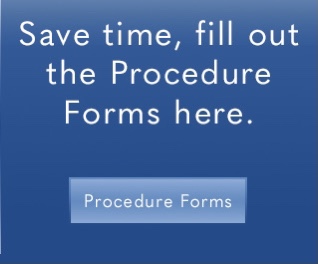FAQs
How do you know if you need a root canal?
When the inner soft tissue (pulp) of a tooth’s root becomes infected, a root canal procedure is typically required. Indications of this issue may include tooth pain, gum sensitivity, persistent tooth sensitivity, or a change in tooth colour. In order to determine if a root canal is necessary, the dentist may need to perform an X-ray.
Does the procedure hurt?
Similar to any other dental procedure, a local anaesthetic is administered around the tooth area during a root canal to numb the nerves and prevent pain throughout the procedure. Having a root canal treatment is no more painful than getting a cavity filled.
What happens if an infected tooth is left untreated?
If an infected tooth is left untreated, the infection can spread to other parts of the body, causing serious complications. Here are some of the potential consequences of leaving an infected tooth untreated:
1. Spread of infection: The infection can spread to the gums, jawbone, or even the bloodstream, which can lead to sepsis, a potentially life-threatening condition.
2. Tooth loss: The infection can cause irreversible damage to the tooth’s structure and root, which may lead to tooth loss.
3. Abscess formation: An abscess may form around the infected tooth, causing swelling and pain. If left untreated, the abscess can rupture and spread the infection to other parts of the body.
4. Sinusitis: An upper tooth infection can spread to the sinuses, causing sinusitis, which can result in nasal congestion, facial pain, and fever.
5. Osteomyelitis: The infection can spread to the jawbone, causing osteomyelitis, a serious condition that can cause bone loss and require surgery to remove the affected bone.
In summary, leaving an infected tooth untreated can have serious consequences, including the spread of infection, tooth loss, abscess formation, sinusitis, and osteomyelitis. It’s important to seek dental care promptly if you suspect you have an infected tooth.
How long does a root canal procedure take?
The duration of a root canal procedure can vary depending on several factors, including the complexity of the case, the location of the tooth, and the skill of the dentist. In general, a straightforward root canal treatment on a single tooth can take between 1 and 2 hours to complete.
However, more complex cases or teeth with multiple canals may require additional time. In some instances, a root canal procedure may be completed in a single visit, while in other cases, multiple visits may be needed to ensure thorough cleaning and effective sealing of the tooth.
Your dentist will be able to provide you with a more accurate estimate of how long your root canal procedure is likely to take based on your individual circumstances.
Is a crown always necessary after a root canal?
While a crown is not always necessary after a root canal, it is often recommended to protect and strengthen the tooth, especially if the tooth was extensively damaged or weakened before the procedure. A crown helps restore the tooth’s structure, seals the tooth to prevent re-infection, improves its appearance, and ensures the long-term success of the root canal treatment. However, in some cases where the tooth is not significantly weakened or if it is a back tooth that does not undergo heavy chewing forces, a filling may be sufficient to restore the tooth. Your dentist will evaluate your specific situation and recommend the most appropriate treatment option for you.
Will my tooth look and feel normal after a root canal?
In many cases, your tooth should look and feel normal after a root canal procedure, especially once it has been restored with a crown or filling. The pain and discomfort associated with the infected tooth should subside, and any swelling or inflammation should also decrease. However, it is possible to experience some sensitivity or mild discomfort for a few days after the procedure, which can be managed with over-the-counter pain medications. If you have any concerns about how your tooth looks or feels after a root canal, it is best to consult with your dentist for further evaluation and guidance.
What is a root canal?
A root canal is a common dental treatment designed to save a tooth that has been severely damaged due to decay or infection. When the soft tissue inside the tooth, known as the pulp, becomes infected or inflamed, it can cause significant pain and sensitivity. At City Smiles, our experienced dental professionals perform root canals to remove the infection, alleviate discomfort, and prevent the need for tooth extraction. This treatment not only relieves pain but also helps preserve your natural tooth structure, ensuring you maintain a healthy, functional smile. By choosing a root canal at City Smiles, you are opting for a solution that prioritises your oral health and overall well-being.
What are the signs that I might need a root canal?
Recognising the signs that indicate a potential need for a root canal can help you address dental issues promptly. At City Smiles, we emphasise early detection and treatment to preserve your natural teeth and oral health. Here are some common signs that may indicate a root canal is necessary:
- Persistent Tooth Pain: Pain that lingers, especially when eating or applying pressure to the tooth, can signal an infection or damage deep within the tooth.
- Sensitivity to Temperature: Increased sensitivity to hot or cold foods and beverages, even after the stimulus is removed, may indicate nerve damage.
- Gum Swelling and Tenderness: Swollen or tender gums near the affected tooth can be a sign of infection spreading beyond the tooth itself.
- Darkening of the Tooth: Discolouration or darkening of the tooth may occur due to internal damage or decay that requires intervention.
- Prolonged Sensitivity: Continued sensitivity to touch or pressure even after the removal of the stimulus can indicate an issue requiring professional evaluation.
If you’re experiencing any of these symptoms, it’s essential to schedule a consultation with our experienced team at City Smiles. Our goal is to provide personalised care and determine the best course of action to restore your dental health effectively.
What happens during a root canal procedure?
During a root canal procedure at City Smiles, our experienced dentists focus on preserving your natural tooth and relieving pain caused by infection or decay deep within the tooth’s pulp. Here’s what typically happens:
- Preparation: First, the area around the tooth is numbed to ensure your comfort during the procedure.
- Access: The dentist creates a small opening in the tooth to reach the infected or inflamed pulp.
- Cleaning: Using specialised tools, the infected pulp is carefully removed, and the inside of the tooth is cleaned and shaped to prepare for filling.
- Filling: Once cleaned, the tooth is filled with a biocompatible material to seal the root canals and prevent future infection.
- Protection: In many cases, a crown is placed over the tooth to provide added strength and protection, restoring its function and appearance.
At City Smiles, we prioritise your comfort and dental health throughout every step of the root canal procedure, ensuring you leave with a healthier smile. If you have concerns or need more information about root canals, feel free to contact us for personalised care and guidance.
Ask a Question or Book an Appointment
Please fill in the online enquiry form to ask a question or book an appointment. We look forward to seeing you soon.



